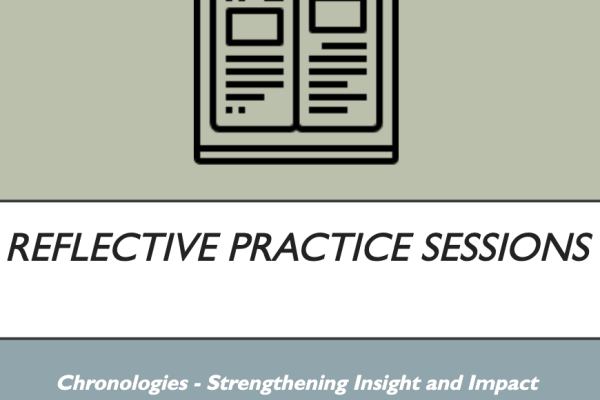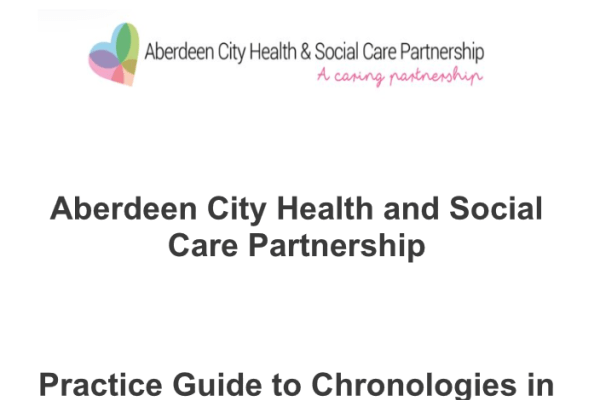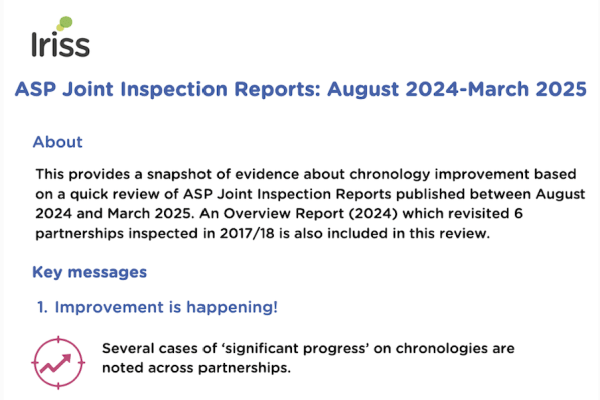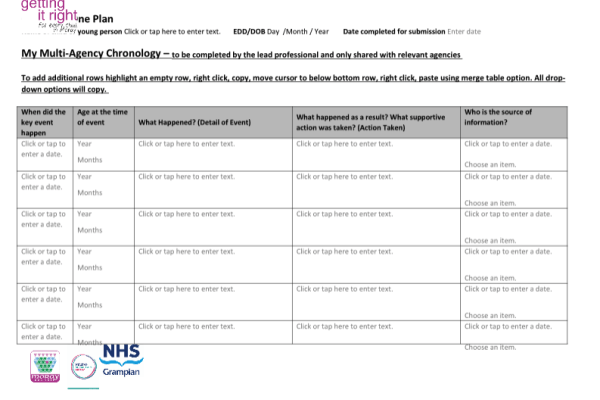Chronologies: Reflective practice session (Dundee)
This learning material supports the development and delivery of reflective practice sessions on chronologies.
The session aims to support delegates to:
- Understand the purpose and value of chronologies in social work
- Reflect on current practice and identify areas for improvement
- Explore how chronologies support assessment, planning, and protection
- Strengthen skills in compiling, analysing, and using chronologies meaningfully
Included is a Powerpoint presentation, facilitation notes, and a chronology template.







